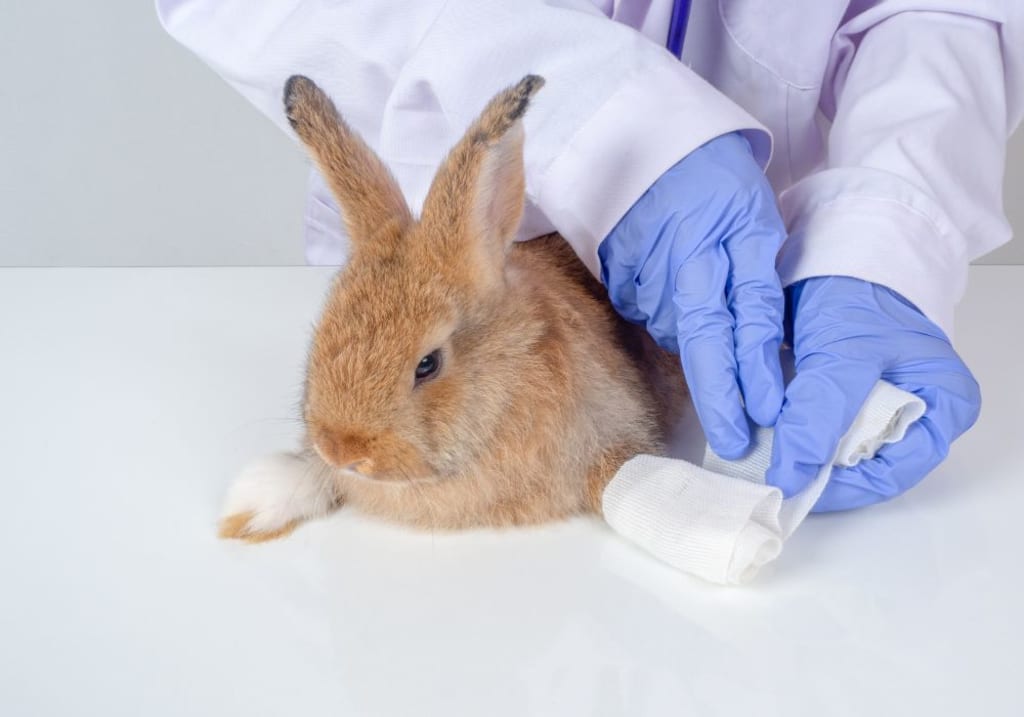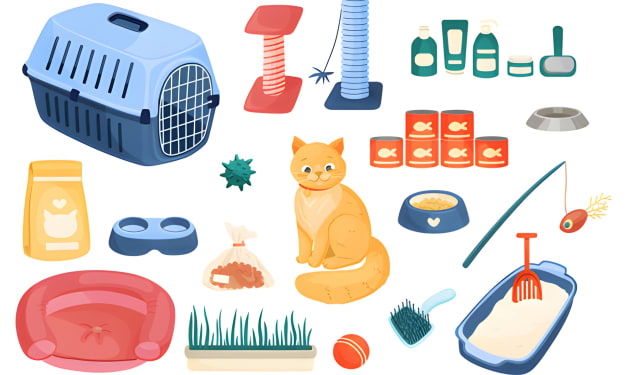How to Prevent and Treat Rabbit Sore Hocks
A Comprehensive Guide

Sore hocks, also known as pododermatitis, is a common and painful condition that affects rabbits of all ages and breeds. It occurs when the skin on the bottom of the hocks (the back part of the foot that touches the ground when the rabbit hops) becomes inflamed, thickened, or even ulcerated due to prolonged pressure or friction on a hard surface.
While sore hocks can be challenging to prevent and treat, there are several steps you can take to reduce your rabbit's risk and promote healing if sore hocks do develop. By providing a clean and comfortable living environment, monitoring your rabbit's weight and diet, and seeking veterinary care at the first sign of trouble, you can help ensure that your furry friend stays healthy and happy.
In this comprehensive guide, we'll explore the causes, symptoms, prevention, and treatment of sore hocks in rabbits, so you can keep your bunny's feet in top condition.
Causes of Sore Hocks in Rabbits
Sore hocks can be caused by a variety of factors, including:
- Improper flooring: Hard, unyielding surfaces like wire or mesh floors can put excessive pressure on a rabbit's feet, leading to sore hocks.
- Obesity: Excessive body weight puts extra strain on a rabbit's joints and feet, increasing the risk of sore hocks.
- Lack of exercise: Rabbits that don't get enough exercise may become overweight and develop sore hocks.
- Poor hygiene: Dirty, wet bedding can irritate a rabbit's feet and lead to infection.
- Untrimmed nails: Long nails can cause a rabbit to sit back on its hocks, putting pressure on the sensitive skin.
It's important to differentiate between normal calluses and sore hocks, as they can appear similar but have different underlying causes and treatments. Typically, it is natural for rabbits to have some calluses on their hocks, which are not painful and do not require treatment.
Symptoms of Sore Hocks in Rabbits
If your rabbit is dealing with sore hocks, you may notice the following symptoms:
- Lethargy and a hunched appearance
- Aggression or reluctance to be handled
- Loss of appetite
- Teeth grinding
- Rapid and shallow breathing
- Bald patches, redness, or inflammation on the feet
- Raw or ulcerated sores
It's important to catch sore hocks early, as the condition can progress rapidly from mild redness and inflammation to open sores, scabs, and even abscess formation and deep tissue inflammation. Severe cases can lead to bone infections or damage to tendons.
Preventing Sore Hocks in Rabbits
Preventing sore hocks in rabbits is all about creating a healthy environment that reduces the risk of pressure, friction, and injury to their feet. Here are some tips to help prevent sore hocks from developing in your bunny:
Provide Appropriate Flooring & Litter Box Bedding
Soft, comfortable flooring can help reduce pressure on a rabbit's feet and prevent sore hocks. Opt for solid flooring covered with a thick layer of bedding, such as:
- Fleece
- Paper bedding
- Softwood shavings
- A hefty padding of hay
Avoid wire or mesh floors, as they can cause sore hocks. When it comes to litter boxes, use a soft, absorbent bedding to keep your rabbit's feet comfortable and dry.
Monitor Your Rabbit's Weight and Diet
Obesity puts extra strain on a rabbit's joints and feet, increasing the risk of sore hocks. To keep your rabbit at a healthy weight:
- Feed a balanced diet of hay, fresh vegetables, and a small amount of pellets
- Provide plenty of opportunities for exercise and playtime
- Monitor your rabbit's body condition and adjust their diet and exercise routine as needed
Maintain Good Hygiene
Dirty, wet bedding can irritate a rabbit's feet and lead to infection. Keep your rabbit's living space clean by:
- Spot-cleaning the litter box daily
- Changing the bedding regularly, especially if it becomes soiled or damp
- Providing a clean, dry resting area
Trim Your Rabbit's Nails Regularly
Long nails can cause a rabbit to sit back on its hocks, putting pressure on the sensitive skin. Trim your rabbit's nails every 4-6 weeks using sharp, clean nail clippers. If you're unsure how to trim your rabbit's nails, consult with your veterinarian or a professional groomer for guidance.
Provide Enrichment and Exercise
Rabbits that don't get enough exercise may become overweight and develop sore hocks. Provide your rabbit with plenty of opportunities for exercise and playtime, such as:
- A large, spacious enclosure with room to move around
- Supervised playtime outside of their enclosure in a rabbit-proofed room
- Toys and obstacles to encourage hopping and jumping
Treating Sore Hocks in Rabbits
If your rabbit develops sore hocks, it's important to seek veterinary care as soon as possible. Your veterinarian will perform a physical exam and may recommend additional tests, such as bloodwork or radiographs, to determine the severity of the condition and rule out any underlying health issues.
Treatment for sore hocks typically involves a combination of pain management, wound care, and environmental modifications. Your veterinarian may prescribe:
- Pain medication to reduce inflammation and discomfort
- Antibiotics to treat any bacterial infections
- Topical ointments or creams to promote healing
You may need to provide daily wound care, cleaning, and bandaging (if your rabbit tolerates it) to keep the affected area clean and promote healing. It's important to wear gloves when treating wounds, as bacterial infections can be passed from your rabbit to you.
Long-term treatment includes making changes to your rabbit's habitat and bedding, adjusting their diet, and increasing their daily activity to prevent sore hocks from recurring. Discuss prevention strategies with your veterinarian and keep in mind that it's much easier and less expensive to prevent sore hocks than to treat them.
Post-Treatment Care and Recovery
After your rabbit has received treatment for sore hocks, it's important to continue providing a clean, comfortable living environment and monitoring their progress. Here are some tips for post-treatment care:
- Keep your rabbit's living space clean and well-bedded
- Provide soft, comfortable resting areas
- Monitor your rabbit's appetite, activity level, and overall health
- Consult with your veterinarian if you notice any signs of infection or worsening symptoms
With proper treatment and care, most rabbits with sore hocks can make a full recovery and return to their normal, happy selves. However, it's important to be patient and allow your rabbit time to heal, as the recovery process can take several weeks or even months, depending on the severity of the condition.
Conclusion
Sore hocks are a common and painful condition that can affect rabbits of all ages and breeds. By understanding the causes, symptoms, and prevention strategies, you can help reduce your rabbit's risk of developing sore hocks and promote healing if the condition does occur.
Remember to provide a clean, comfortable living environment, monitor your rabbit's weight and diet, and seek veterinary care at the first sign of trouble. With proper care and attention, your rabbit can enjoy a long and happy life, free from the discomfort of sore hocks.
About the Creator
Hasan
Welcome...
In this site of mine you can learn amazing things and many information that you don't know so please subscribe to my site.
Enjoyed the story? Support the Creator.
Subscribe for free to receive all their stories in your feed. You could also pledge your support or give them a one-off tip, letting them know you appreciate their work.






Comments
There are no comments for this story
Be the first to respond and start the conversation.